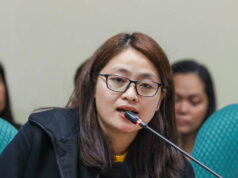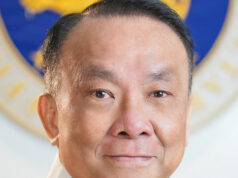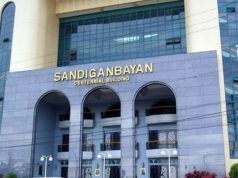HRW flags 2016 Jee Ick Joo murder as Duterte travels to South Korea
By Minde Nyl R. Dela Cruz, Reporter
HUMAN Rights Watch (HRW) on Friday said the South Korean government should hold the Philippine National Police (PNP) accountable for the 2016 killing of businessman Jee Ick Joo instead of donating equipment that will benefit “those responsible for the abuses” in President Rodrigo R. Duterte’s “war on drugs.”
“The South Korean government can play a meaningful role in helping to ‘maintain peace and order in Metro Manila,’ but not by no-strings-attached equipment donations to the police,” HRW said in a statement.
This came after the South Korean Embassy in Manila and the Korean Police National Agency donated to the PNP 130 patrol vehicles in recognition of the 7,000 Filipino soldiers who fought during the Korean war in the 1950s. PNP said the donation would boost its “anti-criminality and criminal investigation efforts.”
“On behalf of Jee Ick-joo, South Korea should use its leverage as a major source of foreign aid and investment to the Philippines to publicly demand an end to the ‘drug war’ killings and support efforts by the United Nations and International Criminal Court to seek accountability for those deaths,” HRW added.
HRW accused Seoul of turning a “blind eye” on the Duterte administration’s crusade against illegal drugs, which allegedly resulted in 12,000 deaths, including that of the Korean businessman who was abducted in October 2016 from his home in Angeles City and later killed at Camp Crame, the PNP’s headquarters, by an anti-illegal drugs unit.
Latest data from the PNP, however, indicated a lower count of 4,279 deaths from July 1, 2016 to May 15 this year.
For his part, Foreign Affairs Undersecretary Ernesto C. Abella said on Friday that Mr. Jee’s murder is “not part of the agenda” of Mr. Duterte’s visit to South Korea on June 3 to 5.
When asked what the President would say if that case is brought up, Mr. Abella said: “I’m sure he will reassure them that everything that needs to be done is being done and that we will assure that justice will be done.”
Mr. Abella also said the President’s discussions in South Korea will take up “social cooperation or the protection of nationals of both countries, with about 1.6 million Korean tourists to the Philippines and 450,000 Filipino tourists to Korea in 2017, aside from the expatriates in each country.”



